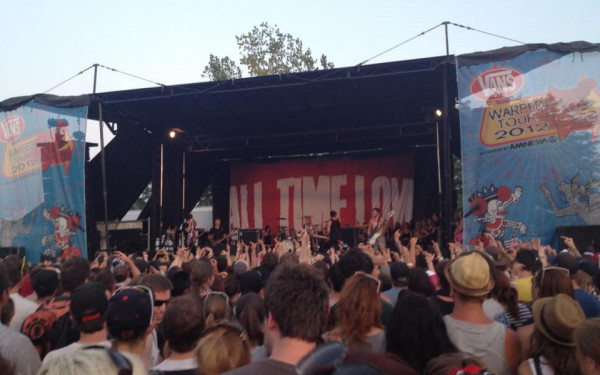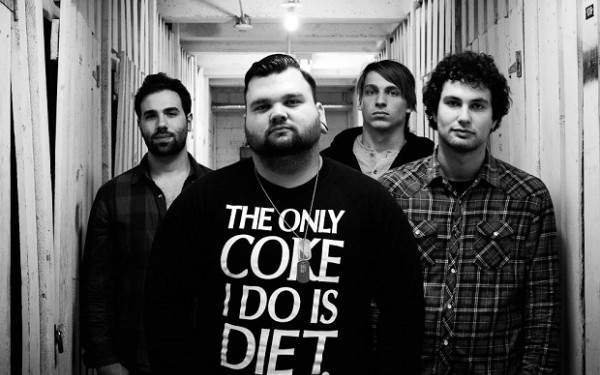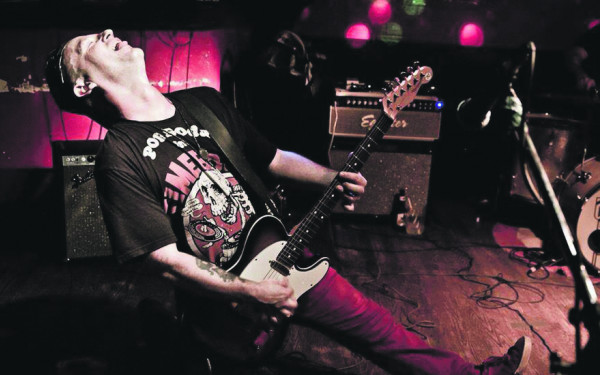Afropunk Fest in Brooklyn Defies Expectations
Bearing Witness to the Dynamism of African-American Culture
Multicoloured bodies lounged on a sea of grass while a voice on stage bellowed, “Trans lives matter.” Artists cavorted on one of three stages adorned with black banners upon which a list was printed in bold white letters:
_*no sexism
no racism
no ableism
no ageism
no homophobia
no fatphobia
no transphobia
no hatefulness*_
Afropunk 2015 took place at Commodore Barry Park in Brooklyn, N.Y. from Aug. 22 to Aug. 23. Touted by some as the most multicultural festival in the United States, Afropunk defies mainstream culture’s stereotypes of blackness in America. It’s about the Black experience that media outlets still fail to define as its influence now reaches mainstream audiences—i.e. most white people.
The festival’s inception dates from 2002. But while it may seem new, the subculture is older than that—just ask Lenny Kravitz, who headlined this year.
This year’s lineup included a fresh breed of artists whose styles blend divergent genres from alt-rock to straight hip hop. Gary Clark Jr., Death Grips, Goldlink, Kaytranada, SZA, Raury: this is the new melting pot.
The queue to admission on Saturday snaked for miles on Nassau Street. High barricades defended Commodore Park against fence jumpers. The crowd was mostly composed of brown faces but a few white ones peppered the contingent. The event attracts people of all races, ages, genders and creeds.
Afropunk lives by its principles: everyone is accepted. It flies in the face of conventional segregated cultures; the assumption of who people are, what music they are supposed to enjoy and how they are supposed to behave carries no weight here.
Men wearing black lipstick; leather vests and nose rings over painted faces; dashikis worn over high-heeled boots; blonde dreadlocks, purple ‘fros, oiled braids and flowing nappy locks coiffed with elegance—festival-goers go all out to celebrate Afropunk.
This is no place for conservative types.
Except for the boys in blue. NYPD officers were all over the park, providing security, while DJs played songs like “Fuck The Police” and “Deep Cover.” Artists took the mic between sets, inviting people to climb onstage to twerk. Despite these lighthearted moments the festival still has a serious side. While keeping it light, the artists also took the opportunity to clamour for the Black Lives Matter movement.
Besides celebrating African-American culture, Afropunk has emerged as a safe conduit for the artistic expression of a new civil rights crusade. With its hippie-like message of love, peace and tolerance, the police presence seemed superfluous.
A thousand feet scrambled, burying a wide open field to get a closer look at Kelis when she came on stage. People danced to her remixed versions of “Caught Out There” and “Milkshake.” She delivered a performance worthy of a diva. Yet, she seemed only an appetizer for this hungry crowd—for one of the headliners that day was Ms. Lauryn Hill. As was expected by most concertgoers, she was late by at least 45 minutes—a small price to pay to hear the ex-Fugees member sing.
Offering no apology, she sang alternate versions of tracks from The Miseducation of Lauryn Hill, her sole studio album dating back to 1998. Her band adopting a lively Caribbean musical style, Ms. Hill seemed to have lost only a fraction of her former singing prowess.
But if the crowd forgave her lateness, some could barely contain themselves—including Ms. Hill herself—when festival officials turned off the lights. Grace Jones was scheduled to take the stage next; Ms. Hill’s set was encroaching upon the time it would take to prepare the stage for the bare-breasted singer.
The songstress played a couple of tracks through the calamity. A small portion of the crowd sang along praying for the lights to come back on—like asking for mercy for the declining legend. At some point though, Ms. Hill was forced to concede and pack up her instruments.
She hadn’t even had enough time to play her best songs. They had literally turned the lights down low on her.
“I was born in Brooklyn,” Lenny Kravitz said. “I’m from Bed-Stuy. You know I’ve been performing for 25 years and this is the first time I play in my hometown. So, this is special for me.”
It seemed like less people showed up for Sunday.
Lenny Kravitz—the veritable embodiment of Afropunk—was scheduled to close out the festival, so it was a bit surprising to see more grass than the day before. People hung out at the fenced-off bar kiosk, some looking straight up despondent. The festival suffered a momentary funk.
Vintage Trouble enlivened its fans though. The singer Ty Taylor even joined the congregation on the green field, belting out soulful verses like a prophet proclaiming a rock n’ roll revival. Taylor made sure he shook off all cobwebs, asking the crowd to do the wave. They agreed in greater numbers than he’d expected.
“I’ve never played to such a boisterous crowd,” he said. “Thank you.”
Next, Kelela seduced the fest with her entrancing stare and high voice range. Her performance was impeccable, like listening to a prerecorded album. She was one of the festival’s hidden gems, a prime example of this subculture’s unabashed will to fuse different styles together. She is labeled as an R&B singer but could easily be put in the electronica sphere.
At nightfall, a throng of new concertgoers seemed to come out of the shadows. Thousands pressed towards the stage hoping to catch a glimpse of an artist who, just a few weeks ago, accidentally tore his leather pants onstage. The crowd roared when they saw his iconic shades and afro. He took the mic, an electric guitar hanging around his waist.
“I was born in Brooklyn,” Lenny Kravitz said. “I’m from Bed-Stuy. You know I’ve been performing for 25 years and this is the first time I play in my hometown. So, this is special for me.”
Kravitz played his best hits, including “Fly Away,” “It Ain’t Over Till It’s Over”, and “I Belong To You.” His lead guitarist stole the show, though, with long solo guitar riffs that made knees buckle and hips swoon.
On Oct. 3 and Oct. 4, Afropunk Fest resumes in Central Park in Atlanta. Then in 2016, the subculture is going worldwide—if it hasn’t already—inviting its devotees to Paris on June 4 and 5.
Video by Shaun Michaud





_600_375_90_s_c1.jpg)